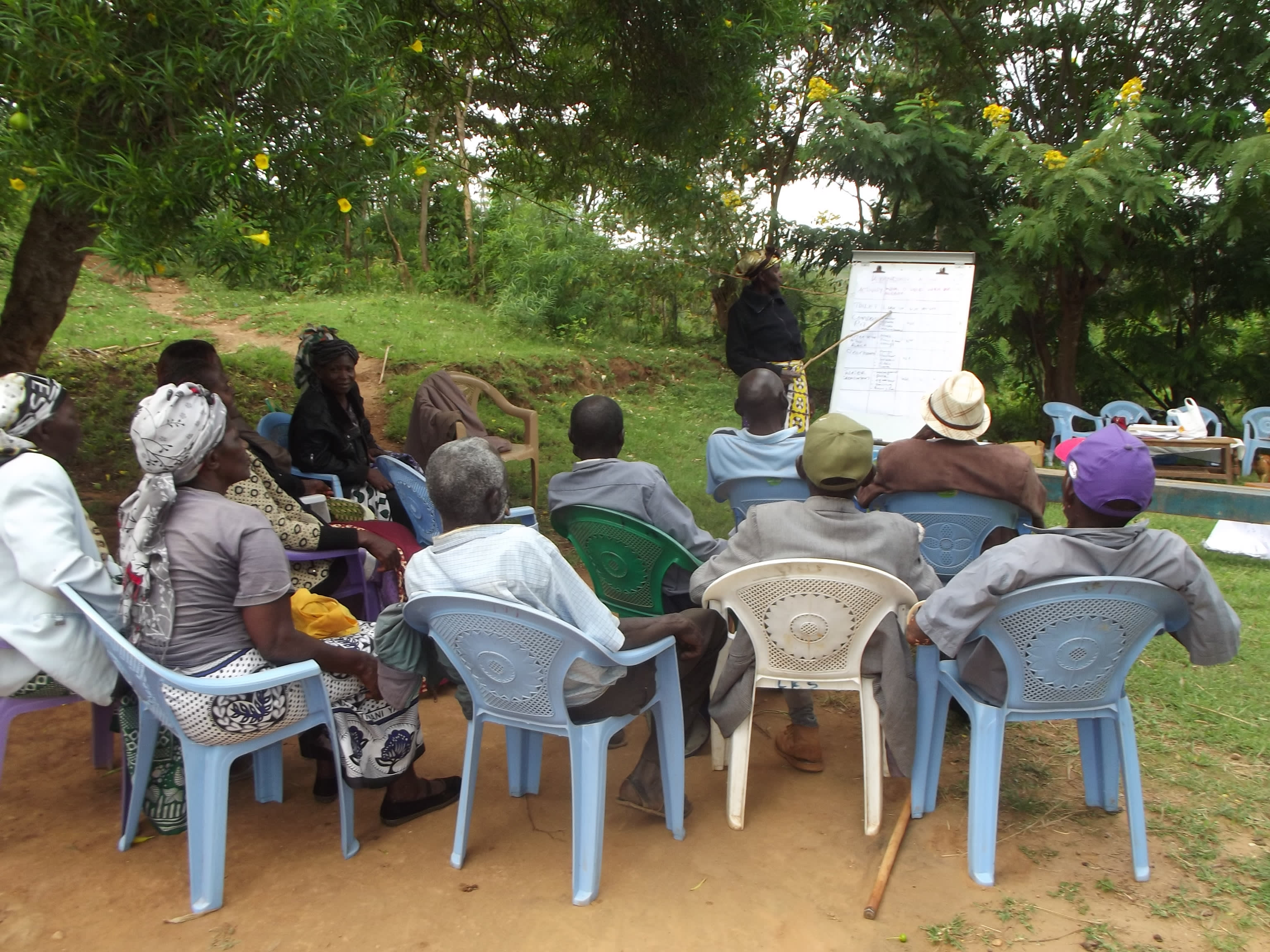This project is a part of our shared program with Africa Sand Dam Foundation. Our team is pleased to directly share the below report (edited for clarity, as needed).
Welcome to the Community
Kyandwiki Self-Help Group was formed in the year 2015 by those living in Katitu. It has 33 members, 10 males and 23 females. The average size of a household is six members each. The main economic activity for the community is farming, with 62.5% of the respondents saying they depend entirely on farming as their livelihood. To supplement farming, 19% of respondents engage in casual labour as a means of earning a living. In this case, casual labor means doing menial jobs like digging terraces or fetching water to sell, herding livestock, among other related activities.
Water Situation
The main sources of water in the area are a natural spring and a seasonal river, where people dig scoop holes to get water. 62.5% of the respondents fetch water from natural springs while 37.5% fetch water from the river. On average, it takes 1-2 hours to travel to a water point.
The limitation in availability of alternative water sources has created a business opportunity for the youth in the area. The youth spend all of their time fetching water from the spring and transport the water to the nearby town where they sell it at a fee for those who are unable to travel that far. It costs 10-30 shillings per 20-liter jerrycan of water. Due to all of these factors, there are long queues at the water point throughout the day. If one cannot afford to pay for their water, they must fetch it very early in the morning before 5 AM to avoid the long lines.
Water is transported home either by donkeys, ox-pulled carts, or human backs. The transport depends on the money each household can spend. Since water insecurity has been a continuous challenge, it's normal for a household to have a donkey. One donkey can carry up to 100 liters of water, while the ox-pulled cart can carry about 400 liters.
To prevent families from making daily frequent trips to the water point, each household has a specific day for fetching water. Most prefer fetching water during weekends when the children are around to help. However, this also means that during those days there will be long queues. On water-fetching days, more than three trips are made to fetch water. When delivered home, the water is stored in large reservoirs to be rationed throughout the rest of the week.
Sanitation Situation
Since we've been in relationship with Kyandwiki Self-Help Group and the people of Katitu since the beginning of last year, we've seen great hygiene and sanitation improvements. 100% of households in Katitu now have a pit latrine, the majority of them well-constructed and roofed. They are frequently cleaned, too.
All of these households also have bathing rooms for privacy for when they practice personal hygiene. Most also have helpful tools like dish racks and clotheslines, but a great many families still need to set up a station at which to wash hands.
Plans: Hygiene and Sanitation Review
The group will meet for three days for an extensive review on what they’ve learned about hygiene and sanitation. After visiting many of their homes in person, we decided to focus on hand-washing with them again. While we were there, Mrs. Ndinda Muendo said, "I rarely treat my water, though am not sure of the quality of water. We have had cases of waterborne diseases." We will also use these sessions to highlight water treatment methods that are affordable for those living in Katitu.
Plans: Hand-Dug Well
Using the tools and guidance we provide, the community will excavate a hand-dug well adjacent to their new sand dam, giving them a safe place to draw drinking water. When finished digging, our artisan will arrive to install casing, the well pad, and the new AfriDev pump. The adjacent sand dam will bring more water to the people living farthest away from the older sand dam (click here to view the sand dam). It will raise the water table and transform the land, making it fertile for farming.



 Rehabilitation Project
Rehabilitation Project





















